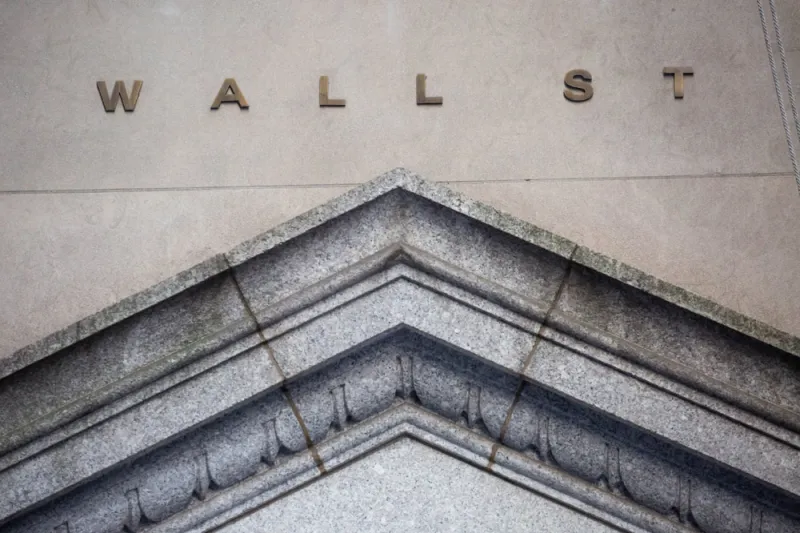A battle by Sixth Street Partners to stop a landmark $12 billion deal to combine Owl Rock Capital Partners with Dyal Capital Partners continued with a vengeance this week, providing more details about the inner workings of the GP stakes business.
Oral arguments in a hearing in the Court of Chancery in Delaware via Zoom this week, along with new court documents and testimony from depositions, offer a window into the legal strategies of both sides in the Dyal SPAC saga.
It’s not pretty.
The origins of the fight go back to December, when Dyal and Owl Rock, a Dyal affiliate, announced that they would merge and go public via a special purpose acquisition company sponsored by HPS, another Dyal partner. The new entity will be known as Blue Owl. No one should be surprised that there's a court fight: The SPAC registration documents themselves disclose the risks of the deal, including potential conflicts of interest among the parties. “Certain partner managers that are engaged in managing funds focused on credit investments may consider Owl Rock to be a competitor with respect to their business and may seek to invoke remedies available to them under the investment agreements,” the SPAC acknowledged in Securities and Exchange Commission filings.
Sixth Street Partners filed a lawsuit in February, asking a Delaware court to stop the merger between Dyal, whose third fund owns a stake in Sixth Street, and Owl Rock. Sixth Street alleges that the deal violates its 2017 investment agreement with Dyal. Sixth Street decided to bring the case because it believes that under the deal it will end up directly competing with its future owner, Owl Rock.
Sixth Street claims that it’s not trying to kill the deal, but wants to be left out of it, a right it has under the investment management contract it negotiated to protect itself when it sold a stake to Dyal in 2017. It wants to be left out of the SPAC because once the Blue Owl transaction is complete, the credit manager says Dyal III’s financial interests in Sixth Street, as well as rights that Neuberger Berman has as a general partner — including non-compete restrictions on its partners and a put right — will be in the hands of a rival.
In fact, Sixth Street says it’s most concerned about those so-called non-economic interests: The put right, for example, allows Dyal to require Sixth Street to buy back its stake in certain situations.
“They can do whatever deal they want to do as long as that deal doesn’t violate our interests,” argued Sixth Street’s lawyers in oral arguments this week.
Sixth Street says it negotiated broad transfer rights in the contract to protect itself against getting into a situation like it will be in with Blue Owl. Transfers were defined broadly, with lawyers specifically adding terms to the contract defining the types of situations that would require Sixth Street’s consent, including “direct and indirect” transfers, “mergers,” and those “involving any Affiliate” or “any interest.”
As a result, Sixth Street contends, Dyal needed to ask for its go-ahead before the deal and if Sixth Street declined to give it, figure out a way for Sixth Street to be left out.
Dyal, of course, disagrees.
Its position is that nothing is being transferred under the Blue Owl deal. Dyal’s third fund, which holds the financial stake and other rights, remains as is. In addition, Dyal says a precedent case in Delaware — called Borealis — prevents Sixth Street from interpreting its contract the way it has. Dyal also argues that the rights Sixth Street claims to have don’t make commercial sense, as it gives the manager far too much power. This would give “Sixth Street a sweeping veto over Neuberger’s business,” according to slides presented by Dyal’s lawyers this week. “Sixth Street thus contends that Dyal III’s passive… investment in Sixth Street allows Sixth Street to hold hostage multibillion dollar opportunities of Neuberger, Dyal Capital, and other parties who did — and were never even asked to — enter into the Sixth Street Investment agreement,” according to an opposition brief made public Thursday afternoon.
During the hearing, Sixth Street used new information unearthed during discovery to make its case.
“Dyal said Sixth Street’s non-economic rights are not being transferred,” said Sixth Street’s lawyers this week. “But in discovery Michael Rees of Neuberger Berman said: ‘I believe that to be the case.’” Investors in Dyal’s funds have to give their consent to the Blue Owl deal, which will move the funds to a new general partner. Sixth Street also played a video clip of a deposition of Dyal’s Sean Ward, a founding member of the firm’s investment team, describing that the economic and non-economic interests were being transferred.
Sixth Street alleges that Dyal Capital also misled the court. According to Sixth Street, Dyal asserted from the beginning that no other managers had the rights that Sixth Street was talking about. “We’ve uncovered that that’s not true,” Sixth Street lawyer told the court. “HPS has asserted them. RXR has asserted them. Owl Rock’s own contract had to be amended because they were asserting them.”
While Dyal has said that it would never agree to the type of control that Sixth Street is saying it has, Sixth Street alleges that Dyal agreed to almost identical terms and language in HPS’s agreement.
Sixth Street only learned of similar contracts during discovery, including while deposing Andrew Komaroff, chief operating officer of Neuberger Berman. Komaroff said Dyal sought other consents as part of its process, according to court documents.
The trial also exposed some controversy over the valuation of Sixth Street. Around February 8th or 9th, Sixth Street says Dyal asked the partners to offer to make a proposal to buy back the company. Sixth Street offered $420 million, the 2017 value but also the value at which Dyal held the stake on its books as of June 30, 2020 and which Dyal reported to limited partners, according to court documents. “We did that. We did it at the value that they have on their books. If the value they have on their books is wrong, well, they’re going to have some explaining to do to somebody.”
According to Dyal’s opposition brief, the GP stakes manager never asked Sixth Street to make a buyback proposal. Dyal said the offer was a “shakedown” and far less than what it was worth and that it wouldn’t accept it. (Spokespeople for Dyal wouldn’t comment further on the company’s valuation.)
The partners in the firms involved in the lawsuit have long resumes in the industry. Alan Waxman, CEO of Sixth Street, co-founded the firm in 2009 after a long career at Goldman Sachs. Doug Ostrover, a co-founder of Blackstone’s credit arm, KKR’s Marc Lipschultz, and Goldman’s Craig Packer started Owl Rock in 2016.
Sixth Street isn’t the only partner unhappy with the Blue Owl deal. Credit manager Golub Capital, in which Dyal owns a stake, is also suing to stop the transaction.
Lawyers for Sixth Street opened the hearing, saying the core of its case centered on partnership law. “It picked Dyal over Goldman Sachs, Blackstone, others in that space, because Dyal was conflict free and they thought they could trust Dyal. And they certainly wouldn’t have picked Owl Rock, who they’re now being put into a forced marriage with. Owl Rock is a direct competitor.”
[II Deep Dive: Inside the Explosive Lawsuit That Started a Legal War Between Sixth Street and Dyal]
While court documents, testimony, depositions, and the hearings were riddled with legal terms and contract law minutiae, Sixth Street alleges that its core concerns are about the conflicts in the Blue Owl deal and the sensitive nature of a business partnership. Dyal and the other GP stakes managers provide support services, have access to confidential information, and work closely over long periods of time.
Sixth Street’s lawyers presented a text message chain between Lipschultz and Rees, who will be co-presidents of Blue Owl. (The chain also includes Dyal’s Ward and Ostrover of Owl Rock). In the messages, Lipschultz and Rees discuss possible responses, including visuals showing before and after diagrams of the organizational structure, to Sixth Street’s contention that the Blue Owl transaction is a transfer. After a few texts back and forth, Rees wrote, “visuals are always good.” Lipschultz responded, “in that case, here is another visual for them” and added an emoji of a flipped middle finger.
“This is Mr. Lipschultz’s view of our client…. You can imagine the reaction that my clients had to seeing that and thinking about their crown jewel business subject to the veto control and information rights going into the hands of a competitor who has that view of them.”
Sixth Street claims it will suffer irreparable harm if the Blue Owl deal is allowed to proceed. Dyal disagrees. Sixth Street’s senior executive admitted as much, in writing, after they learned about the transaction, according to Dyal’s opposition brief. In emails, before all of the details of the Blue Owl deal had been made public, Dyal said Sixth Street’s executives described it as having “zero impact on [Sixth Street’s] business” and that Dyal III did not “get competitively sensitive information from [Sixth Street] in any real sense.”
And maybe dollars and cents could mitigate the harm to Sixth Street. “Nor is there any reason that Sixth Street could not be made whole by an ultimate award of damages in the unlikely event its claims prove meritorious,” wrote lawyers in Dyal’s brief.







